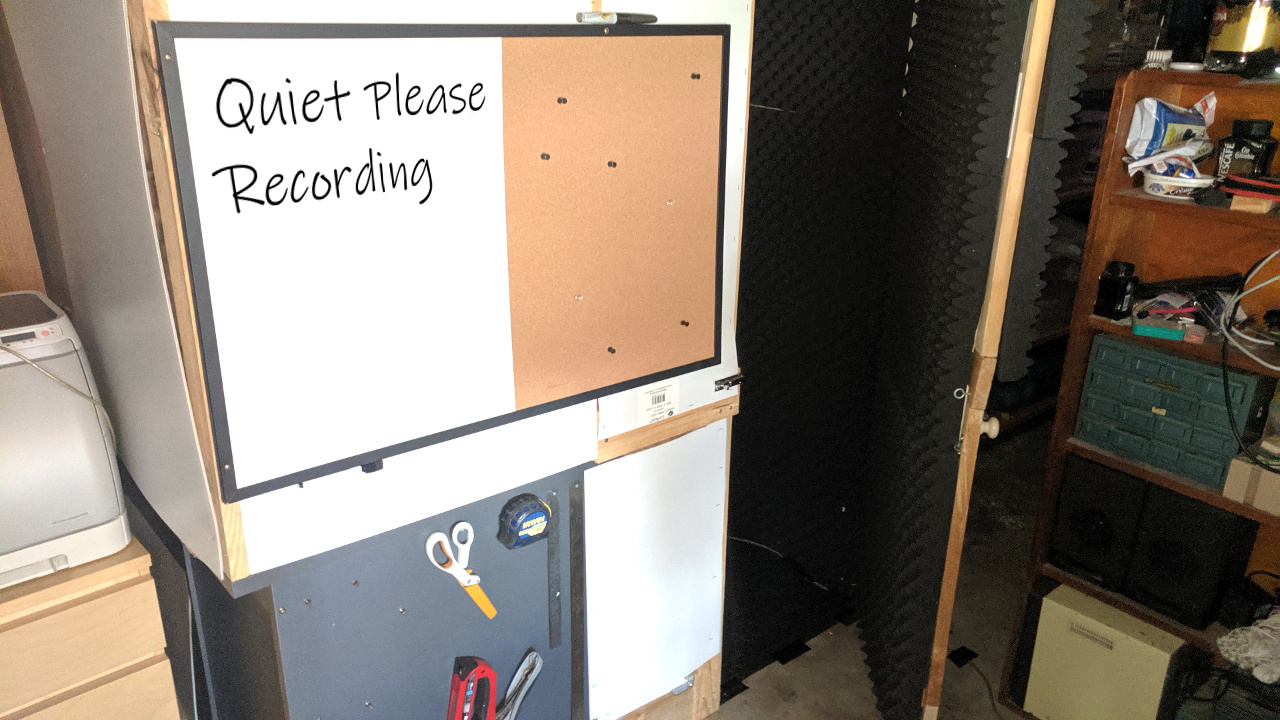When it comes to doing the voicework for the audiobook, I’ve found that there are definitely some dos and don’ts. If you’re thinking about doing the same, be sure to see if these pointers apply to you.
Clothing. Wear soft, natural fibres. It’s cold here, so I had on some heavy cargo pants and a polyester vest, and the mic picked up every little microscopic movement I made. Noisy clothing will quickly ruin your take, so ditch them. Do it in undies. Go naked if you need to, just steer clear of corduroy, nylon or any other noisy clothes. You’ll naturally shuffle in your seat from time to time, so don’t rely on just sitting still. That said:
Sit Still. No, really. If you’re fidgety from sitting down for a long take, pause, take a break, walk around, have lunch, go to the toilet, clear your head. Not necessarily in that order. Your body wants to move, but while you’re doing a take, keep still. On that note, keep your head at a constant angle to the microphone. The pickup for the mic will vary as the angle, so if you’re overly animated while talking, you’ll hear a change in volume.
Check your settings. Check and double check and check it again, before and after you record, and check it in between chapters. Want to waste a day? Don’t check it. It only takes a few seconds and it will save you time. Record in Mono at or above 44.1 kHz, at a rate of 192kbps or above. If your gear doesn’t support this, get new gear.
Have water handy. Stay hydrated. You think you can talk for an hour straight? Two? Five? How long before your throat gives out. Take regular breaks to drink, rest your mouth, stretch your lungs. Use lip balm (I had to after the third time around). I’ve read about not eating cheese or having milk, since this produces phlegm. I can’t say much about that, but I can attest to avoid eating spicy or oniony foods. I was burping so much, I had to stop every other sentence.
Mark your mistakes. Muck up? Say a short, sharp ‘Beep’ and start again. Speak too fast? ‘Beep’. Mispronounce a word? ‘Beep’. Want to say that sentence again, but with difference emphasis? ‘Beep’. Let out an unexpected belch? ‘Beep’. The Beeps might sound like you’re polluting your sound track, but actually you’re providing markers to yourself to draw attention to a portion of audio. Like underscoring a word, a beep shows up after to let you know that whatever just happened was probably wrong.
Go slow. If you need to pause between sentences, go right ahead. If you need to pause after a comma, feel free. If you need to swear, shake out the jumbles and flibble your lips back into shape, do so. The software editing part at the end of it all allows you to crop out the pauses quickly. Yes, it’s more work, but it’s even more work if you happen to stuff up a sentence because you didn’t take the time to read ahead or get your enunciation right.
Read ahead. It’s your work, right, and you know what you wrote, right, word for word, right? Nah. Not at all. You’ll be reading sentences that you’re only just rediscovering. Like reading a book, sometimes the clue to the character or situation happens after the significant fact. “Go away,” she mumbled. Oh, right, mumbling. “Go away,” she huffed. Hmm, huffing. “Go away,” she laughed. Mirth, got it. ‘Beep’, go back, do it again.
Breathe. Sounds obvious, but I reckon breathing was one of the hardest parts to overcome. There’s a natural tendency when talking naturally to take breaths whenever. It can be while talking, halfway through a sentence, halfway though a word. Do your best to overcome your desire for a breath by pausing, breathing a little more and resuming your speech.
I’m sure with plenty of practice, this will all become second nature. Nah, I don’t believe that for a second. More like, ‘with plenty of practice, your get better at spotting where you’re going wrong, and have the maturity and discipline to take active measures’.

